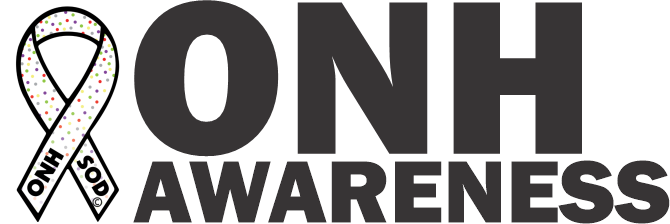Getting a medical diagnosis of any kind can come as quite of a shock to most. Getting a medical diagnosis as a parent to a newborn baby is just scary!! It can be just as shocking but also comes with waves of guilt and sadness, anger and disbelief plus all sorts of grievances. It can be traumatic, cause depression or anxious feelings and all of this while you are navigating your brand new little baby. Whether you are a first time parent or it’s your second, third of fourth time around -it’s unexpected and often unexplained.
There are a lot questions that come to mind and some commonly asked questions are: how will this impact my family life? Will there be financial strain? Will we need extra health insurance coverage? Should we look for Specialists? Is there funding for ONH? The way a government or organization like SSI would determine if benefits would be offered due to the ONH diagnosis depends on how much the person affected is impacted by visual impairments, developmental and intellectual developments and physical conditions. ONH can be described as a disability if it adversely impacts one’s vision. Most organizations agree that 20/200 is legally blind. Being legally blind by definition means your visual impairment cannot be corrected with glasses. There are many conditions that cause blindness. Blindness is a spectrum disorder, just like ONH.
ONH does not appear to be hereditary/genetic. The little research that is available on this indicates little to no evidence of a mutation that might be associated with ONH. But, research is continually on-going. Right now (6/2023) there is no concrete link to be found. The chances of having two children affected in the same immediate family is rare, but has been reported.
ONH is not progressive/degenerative – ONH doesn’t get worse. There is a good chance that vision will slightly improve or stabilize during childhood. Annual eye exams are necessary! Eye Health is health!
ONH is a rare visual impairment. During utero (around 14 weeks gestation) is when an infants optic nerves develop. Millions of nerve fibers connect the eye to the brain. When ONH occurs the fibers are minimal and in some cases almost completely diminished or the optic nerves aren’t fully developed. Due to the nature of the eye and brain corresponding to provide eye sight, It’s not uncommon that some cases of ONH are accompanied by brain abnormalities and hormone deficiencies.
ONH can cause loss of acuity, depth perception, and/or field vision. Acuity can be described as blurriness/unclear or distorted images. Depth perception is being able to tell how far away objects are at a glance. A child with different amounts of vision in each eye or who has strabismus is reported to have very limited to no depth perception at all. Field vision is how wide your view appears. Having loss of field vision can be described as having tunnel vision.
At ONH Awareness we recommend making appointments with three key doctors as soon as your child is diagnosed. First and foremost you’ll want establish primary care with a pediatrician and explain the ONH diagnosis to them. From there please request information for a pediatric ophthalmologist, an endocrinologist and a neurologist. Each healthcare provider will now be members of your child’s professional medical team moving forward. It’s very important to establish good relationships and communication with this team and remember that you are an important member of this team too.
Thanks for reading!
Joanna
